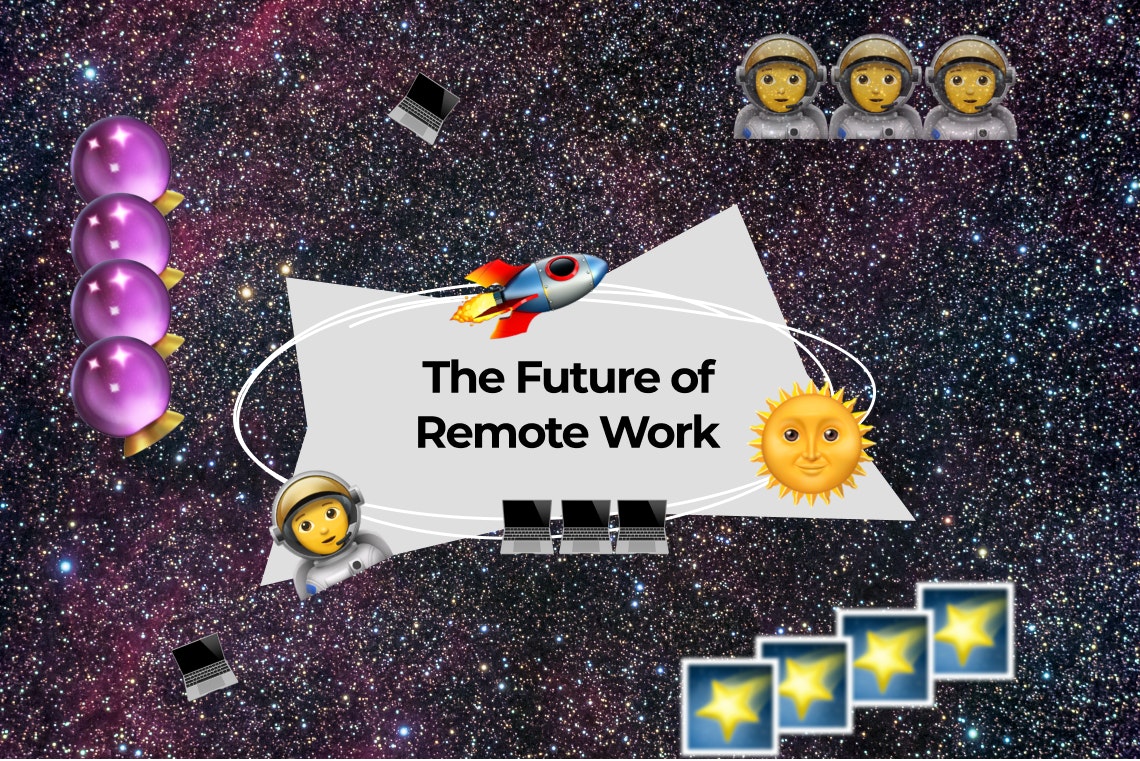The Future of Remote Work
We’re not returning to offices. Turns out, it’s good for business.
September 08, 2021
4 min read

One of the things we have realised during the Covid-19 pandemic, is that we can work from home and do it effectively. A survey conducted by Mercer, an HR and workplace benefits consulting firm, found that 94% of employers said productivity was the same as or higher than before the pandemic, even with their employees working remotely. While most companies still figure out how to adjust to new realities of workspace, Voypost has been operating 100% remotely since the very beginning. Here, we believe that the future of work is remote.
It is actually not an entirely new concept to begin with. According to Upwork’s research in 2019, 63% of US companies had remote employees and 35% rely on freelance work. It means that the GDP of freelancing ‘industry’ is higher than the GDP of such major industries as construction or transportation.
Of course, some professions will most likely never be able to convert to remote work fully because of the need for direct contact with the consumer or to use specific equipment. Others will have to go to the office for data security reasons. There are many reasons, and each profession and business has its own. More often than not, they are associated not with the internal limitations of managers who do not understand how to do work remotely, but with the absence of some kind of physical solution that allows transferring work into a distributed format.
The general hesitation to convert to remote work needs to be addressed, though. Is it just generational differences? Fear of the unknown or simply a lack of understanding? While giants such as Twitter and Facebook make remote work permanent, allowing their workers to choose whether they wish to work in or out of the office, many revert back to working traditionally. There’s a widespread lack of trust towards employees’ work ethic. Actual research, on the other hand, clearly states that remote employees are often more dedicated and productive.
However, the major shift of the global workspace from office to remote is unavoidable. Now, management increasingly focuses on work done rather than hours worked. Companies don’t run things strictly for business continuity, but instead shift their focus towards growth and innovation.
That leads to the main advantage of remote work. No longer must companies limit themselves to the local talent pools or persuade potential talent to relocate. Hiring remotely enables organisations to access the best person for the job anywhere across the world with a working WiFi. If you're looking for a job, you can find a job on Jooble. This also contributes to a fundamental transition in the nature of work: jobs become separated from companies, while companies become platforms. Specialists become ‘self-sufficient artisans’ (Gigster, 2018). Moreover, such an approach allows to speedily scale teams and hire on demand, consequently becoming a much more cost-effective option than sustaining a physical office.
Another reason besides worldwide hiring for going 100%-remote for us at Voypost was a desire to optimise business processes. We are developers, after all, we want to optimise everything. Those who work at the office spend on average two hours a day travelling to and from there. Without this need to travel, in a year, one can save an amount of time equal to a working month. That is, in a span of a year someone spends as much time on the road as they spend on their work in the course of a month. There are many things all of us would rather be doing than be crowded in public transport during rush hours.
Communication is essential within the digital workspace. Some say that it’s easier when all the workers are located in one place, as you can just ask someone a question. However, communication tools are now more available than ever. It may even be more advantageous to communicate through a messenger, because in person you may distract your coworker, but online they can work on your issue when they’re ready to give it their undivided attention.
Transformations in the workspace can also include creation of new job positions, for instance, Director of Remote Work, who will oversee production and ensure operational efficiencies in the digital office. In addition, companies will need to focus more on their cybersecurity, concerning themselves with how data is accessed and how to effectively secure it. Cisco’s Future of Secure Remote Work Report outlines that 85% of all participants claim cybersecurity to be extremely important or even more important than before the pandemic.
The world is reshaped constantly and business has to adapt accordingly. For example, how offices switched from on-premise storage to cloud computing. Similarly, now we globalise business and eliminate geographical limitations, tapping into unaccustomed talent pools, making processes more effective and cost-efficient.